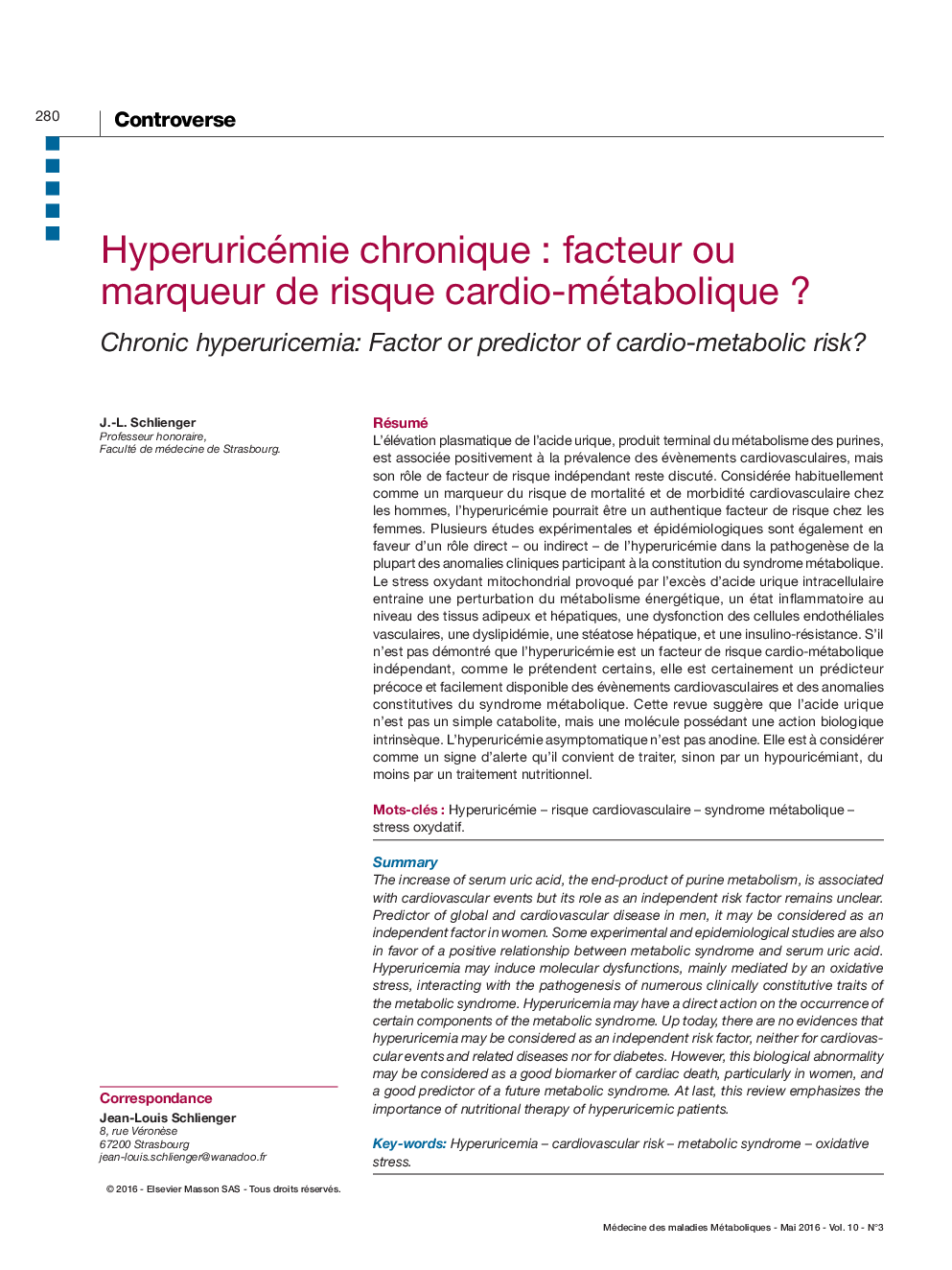| Article ID | Journal | Published Year | Pages | File Type |
|---|---|---|---|---|
| 3274124 | Médecine des Maladies Métaboliques | 2016 | 5 Pages |
Abstract
The increase of serum uric acid, the end-product of purine metabolism, is associated with cardiovascular events but its role as an independent risk factor remains unclear. Predictor of global and cardiovascular disease in men, it may be considered as an independent factor in women. Some experimental and epidemiological studies are also in favor of a positive relationship between metabolic syndrome and serum uric acid. Hyperuricemia may induce molecular dysfunctions, mainly mediated by an oxidative stress, interacting with the pathogenesis of numerous clinically constitutive traits of the metabolic syndrome. Hyperuricemia may have a direct action on the occurrence of certain components of the metabolic syndrome. Up today, there are no evidences that hyperuricemia may be considered as an independent risk factor, neither for cardiovascular events and related diseases nor for diabetes. However, this biological abnormality may be considered as a good biomarker of cardiac death, particularly in women, and a good predictor of a future metabolic syndrome. At last, this review emphasizes the importance of nutritional therapy of hyperuricemic patients.
Keywords
Related Topics
Health Sciences
Medicine and Dentistry
Endocrinology, Diabetes and Metabolism
Authors
J.-L. Schlienger,
